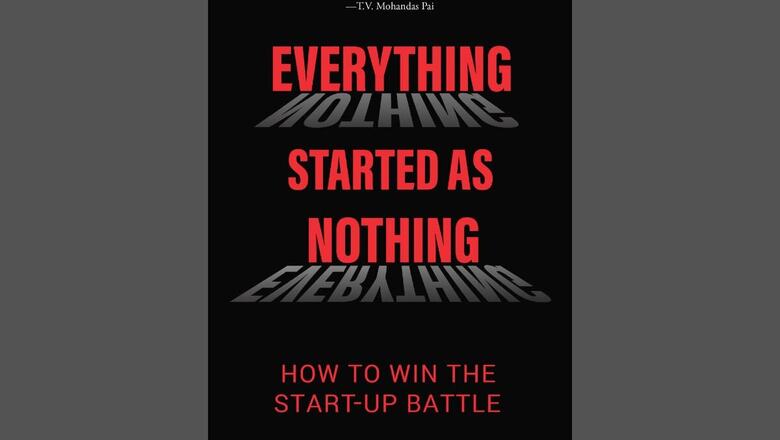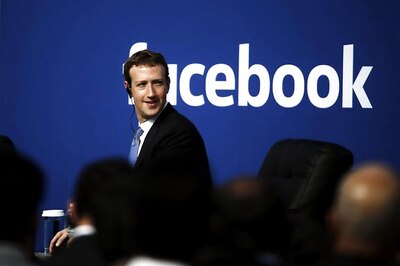
views
How does a business idea come to a person? Again, there are no definite answers. Your idea could be related to the industry you are working in, or could be a product or service from a different area you are passionate about.
I remember having a chat with Sanjeev Kapoor, the celebrity chef and television personality, in 1995 at Juhu Centaur in Mumbai, where he was the executive chef, when I had asked him what his vision was for the future. He spoke of how ‘cooking and food’ is a passion for Indians and how there was a need for creating a business around the idea of a ‘celebrity chef ’. His show Khana Khazana had started to air on Zee TV in 1992.
One of the observations that he shared with me was that there was a growing consumer base of Indians who could not afford five-star dining but wanted five-star menus. According to him, the celebrity chef could bridge this gap. The chef could publish his recipes across various media like print, television and digital media. This was clearly ahead of its time and someone as optimistic as me had also thought that this was a figment of his wild imagination. Three decades later, he has executed his vision to the letter and spirit, and has stayed relevant to the changing consumer.
When I reminded him about our discussion and asked if he had planned this journey, Sanjeev said, ‘In life we always want to have the best. Did I plan all this right at the time I started television? The answer is no.’
His transition from a celebrity chef to a businessman happened because he saw an opportunity at the right time and worked on it. For instance, the impact of influence and the need to connect with a wider audience-base happened accidently. ‘I had just started Khana Khazana and was given a UK magazine to read. The magazine had published a six-part series on eggs by Chef Delia Smith and the article looked into how the consumption of eggs in the UK had gone up during that time. In one of the segments, while making an omelette, Delia had said, “Wow, this pan is a little gem, makes a perfect omelette.” The sale of that pan went up by 440 per cent, claimed the article. The idea of selling cookware came from that. Of course the magazine was brought to me by a cookware brand who wanted me to do a similar endorsement. But what I saw in there was the impact of influence. That got to me and I started to use mediums other than TV to connect with people. Whether it was radio shows or writing columns in newspapers, magazines and websites… I did everything possible. As early as 1996, I had a website. I even started my own channel, FoodFood,’ he says.
ALSO READ| What’s Common to England Lifting 2019 World Cup, Imtiaz Ali Movie and IIT Kanpur’s Ventilator Project?
Similar is the story of WonderChef, his appliances business. In the US, George Foreman grills are extremely popular. The grill is promoted by the professional boxer George Foreman. A company wanted to bring these grills to India under the name Sanjeev Kapoor Tandoor. The product was instantly a big hit. This made Sanjeev realize the option of the appliances business. He also saw that there was a need and demand for such products. Today, the appliances business is around Rs 300 crore in revenues.
Above all these bets, I think what Sanjeev has managed to achieve is to elevate the stature of chefs, who, till he started Khana Khazana, were relegated to the kitchens of five-star hotels with no identity of their own.
Ideas can emerge from areas that you are passionate about. Take the case of Aniruddha Sharma, founder and CEO Carbon Clean Solutions. He has been a strong climate change advocate and has been in favour of countries taking strict climate change measures. In 2009, at the United Nations Climate Change Conference held in Copenhagen, he was one of the protestors who had demanded that all countries sign up for a pledge to aggressively reduce their carbon footprint. Reducing industrial pollution matters to Aniruddha because he comes from Bhopal, which saw India’s worst industrial disaster. ‘Four days before the Bhopal gas leak happened, my entire family was in the city for my parents’ marriage. I have seen up close the impact of the Bhopal Gas Tragedy on many of my family members and its continuing effects; no amount of medication can help. I do feel that something bad can happen if we do not control industrial pollution. This was just one city. Imagine if this had happened on a large scale,’ he shared.
So, when his friend at IIT Kanpur, Prateek Bumb, started discussing his internship with an Italian professor on using technology to reduce carbon emission in industries, Aniruddha saw an opportunity for commercializing this idea. And over a cup of coffee between two friends, Carbon Clean Solutions was created.
Says Aniruddha, ‘This was actually a coffee conversation I had with my co-founder Prateek. In 2008, Prateek was interning with a professor in Italy and they were looking at this technology. So, when I asked him if anybody was doing this in India, he said no one—that was the start of the company. We formed a team, started participating in inter-IIT business competitions and at the first pan-IIT business conclave, we received the first award and it came from Tata Motors and Tata Steel. At that award function, both the Tata CEOs said, “If you can solve this problem, we will be your first customers.” That made us think—if two of the most respected companies of the country are interested in what we are doing, then we are on the right path.’ That was how Carbon Clean Solutions began and today, they have moved their operations to London and raised over $26 million. What started out of passion for clean environment has developed into a large global business that provides clean-tech solutions to large enterprises globally.
Sometimes, a recurring problem one faces germinates an idea, which in turn becomes an opportunity. The seed of Redbus was sown in the entrepreneurial ground in 2005, when Phanindra (Phani) Sama, an engineer in a multinational at the time, was going to travel from Bangalore to Hyderabad for his Diwali vacations, and he missed the bus. Says Phani, the founder of Redbus, ‘I could not get a bus ticket to travel to my hometown. I wandered around Bangalore for a ticket. That day I came to know the disorganization in the system and the communication gap between bus operators and travel agents. There was no transparency on the availability of seats and ticket prices, and everything was done through phone calls.’ Phani found the whole process clumsy and fragmented. ‘I believed the problem could be solved through an online platform. Then I discussed with my friends and three of us got together and decided to become entrepreneurs, more driven by the idea and opportunity, than by the hangover of wanting to be an entrepreneur.’
ALSO READ| Entrepreneurship is Now Celebrated. Possible to Make it Big in India: Maker of Low-cost ICU Ventilator
The business idea could be based on a global business model and you could roll it out in your home market and be a success. Bhavish Agarwal was with Microsoft Research when he had a bad experience in a cab journey in 2011, and started Ola Cabs, replicating the Uber model which had started in the US in 2009.
What Bhavish and Ankit Bhati, his co-founder, did was to enhance the Uber model for the Indian context. They added premium pricing and provided Wi-Fi and in-screen services which appealed to always-ON, data-hungry Indians. Given that India did not have public toilets like the west, Ola mapped out in their apps, the nearest toilets. They started the famed OTP (one-time password) to ensure only the right customer could take the booked cab and not someone else, intentionally or otherwise. All this planning elevated the plain vanilla Uber model to a different level in India. There is no harm in creating a business around a global business model if it is customized for the home market, and executed to perfection and scale.
Read all the Latest News, Breaking News and Coronavirus News here. Follow us on Facebook, Twitter and Telegram.



















Comments
0 comment